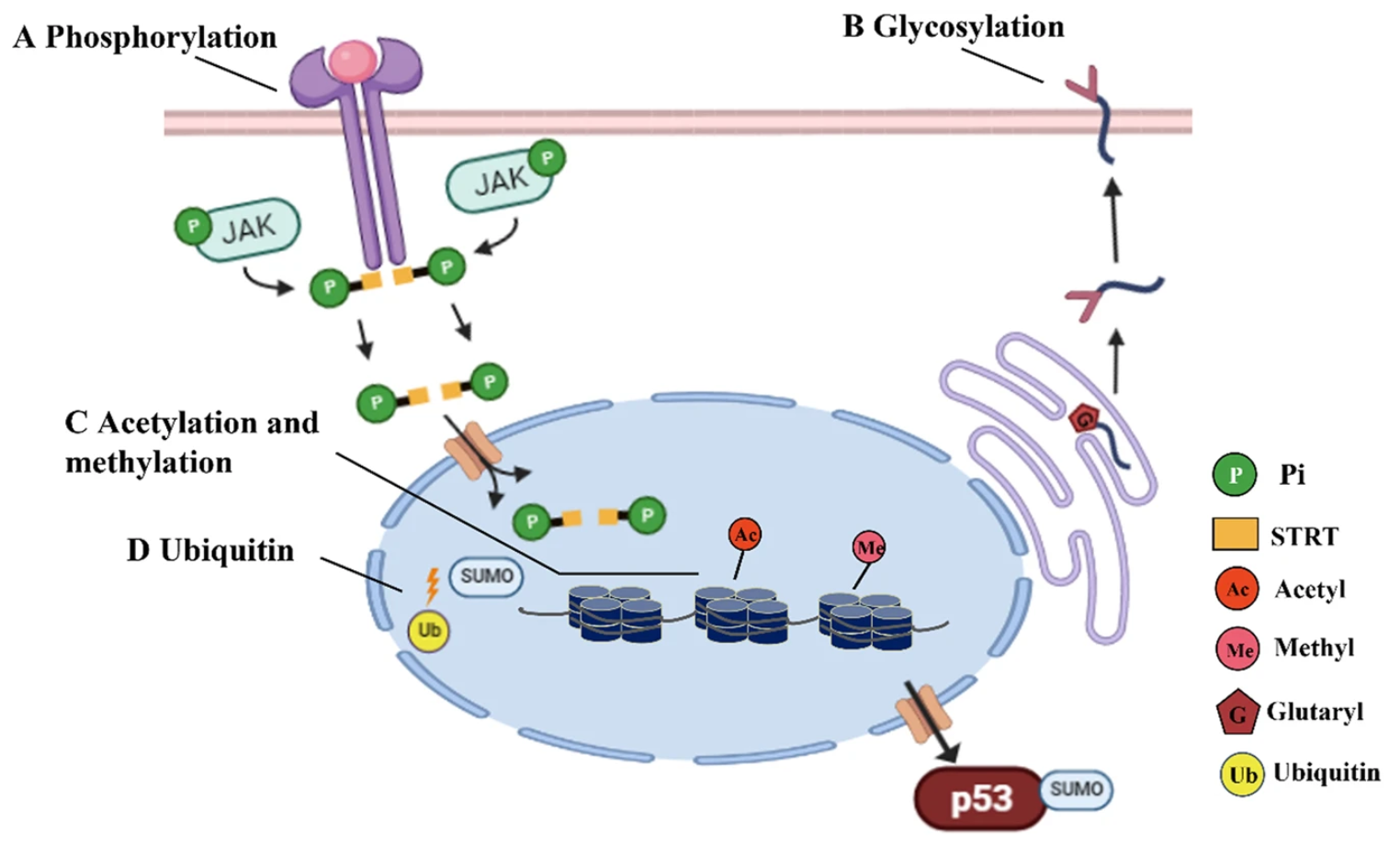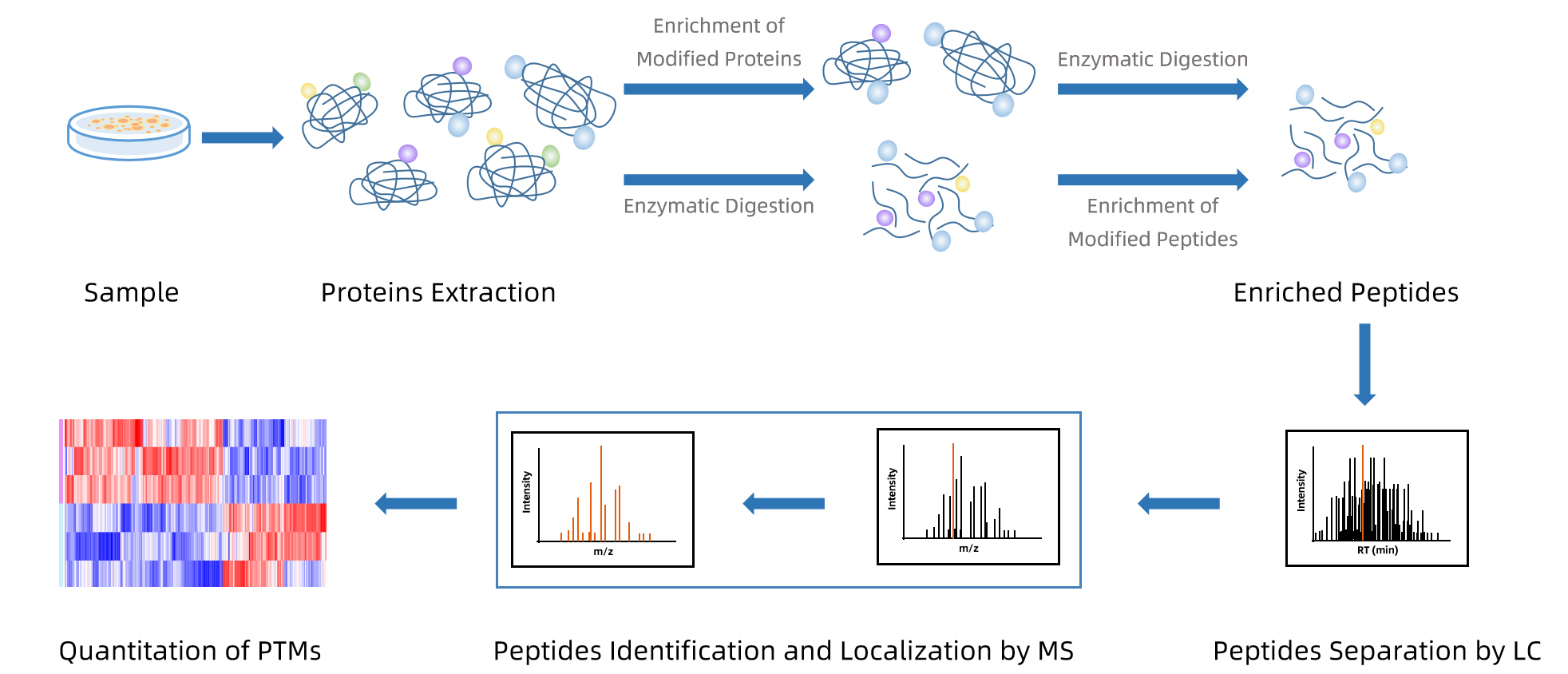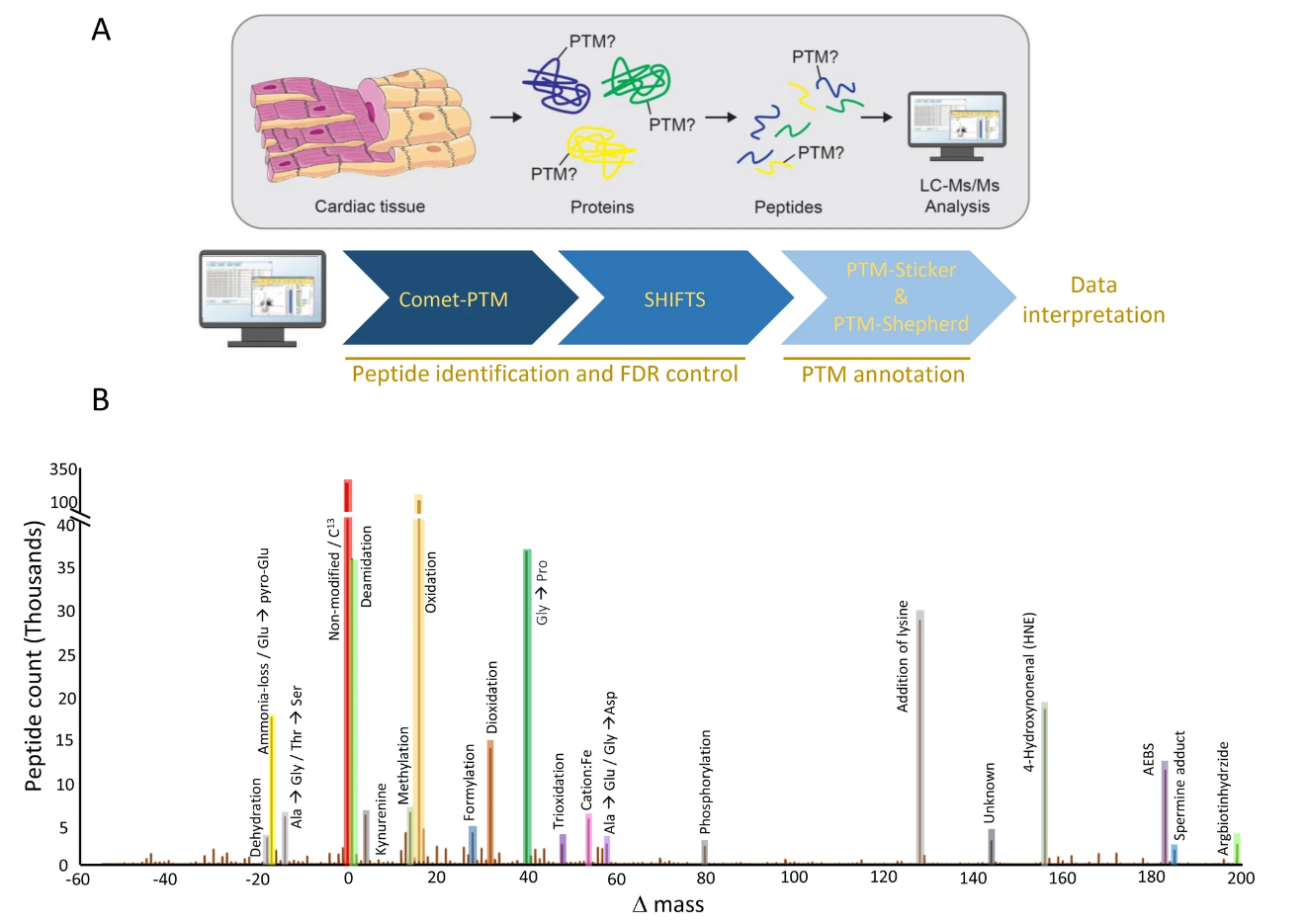Post Translational Modification Mass Spectrometry Service
- Uncover protein function regulation mechanisms
- Identify disease-associated PTMs
- Discover drug target sites
- Analyze cellular signaling pathways
- Evaluate drug treatment efficacy
- Find diagnostic biomarkers
Post translational modification mass spectrometry (PTM-MS) is a powerful analytical technique capable of detecting and characterizing post-translational modifications, addressing the challenges posed by the dynamic and heterogeneous nature of PTMs. Post-translational modifications (PTMs) are critical biochemical alterations that proteins undergo after synthesis, profoundly influencing their function, activity, stability, and interactions. PTMs, including phosphorylation, acetylation, glycosylation, and ubiquitination, regulate many cellular processes such as signal transduction, gene expression, and cell cycle progression. Understanding the full spectrum of PTMs is essential for deciphering complex biological pathways and disease mechanisms. Post translational modification mass spectrometry enables the identification, quantification, and site-specific analysis of PTMs, providing researchers with valuable insights into protein function in health and disease.

Cheng, X. et al. Cell Death Discov. 2023.
Figure 1. Traditional Protein PTMs Types
Post translational modification mass spectrometry identifies low-abundance and transient modifications, revealing key roles in cellular processes, signaling pathways, and diseases. Post translational modification mass spectrometry is crucial for studying protein modifications in vivo and understanding mechanisms underlying conditions like cancer and neurodegeneration. In drug discovery, post translational modification mass spectrometry helps identify biomarkers and therapeutic targets by analyzing disease-related PTM patterns.
Service at MtoZ Biolabs
MtoZ Biolabs offers a comprehensive Post Translational Modification Mass Spectrometry Service tailored to meet the needs of cutting-edge biological and pharmaceutical research. Our service utilizes the latest mass spectrometry technologies, including advanced LC-MS/MS systems, to provide accurate, reproducible results for a wide array of PTMs. Whether you are studying the regulatory mechanisms of cancer cells, identifying novel biomarkers, or developing next-generation therapeutics, our Post Translational Modification Mass Spectrometry Service delivers the high-resolution data you need. If you are interested in our Post Translational Modification Mass Spectrometry Service, please feel free to contact us.

Figure 2. Workflow for Post Translational Modification Mass Spectrometry Service
Service Advantages
1. Advance Analysis Platform: MtoZ Biolabs established an advanced Post Translational Modification Mass Spectrometry Service platform, guaranteeing reliable, fast, and highly accurate analysis service.
2. One-Time-Charge: Our pricing is transparent, no hidden fees or additional costs.
3. High-Data-Quality: Deep data coverage with strict data quality control. AI-powered bioinformatics platform integrates all post translational modification mass spectrometry data providing clients with a comprehensive data report.
4. One-Stop Service: We provide one-stop service from sample preparation, LC-MS/MS analysis to data analysis, saving your time and efforts.
5. Customizable Service: Tailored service to suit specific research needs.
Applications
Our Post Translational Modification Mass Spectrometry Service is applicable in various sectors including but not limited to:
Case Study
Comprehensive Post Translational Modification Mass Spectrometry Profiling in Human Heart Tissue
This study used advanced post translational modification mass spectrometry to explore the diversity of PTMs in human heart proteomes. Proteins were extracted, digested by trypsin, and analyzed using high-resolution tandem mass spectrometry. The data were processed with Comet-PTM and SHIFTS, identifying over 150 distinct PTMs, including phosphorylation (Δ Mass: 79.966 Da), methylation (Δ Mass: 14.015 Da), oxidation (Δ Mass: 15.994 Da), and kynurenine modifications, which were present across 60% of the peptides in the heart samples. These results illustrate the broad spectrum of PTMs in cardiac tissues and highlight the utility of post translational modification mass spectrometry in revealing critical regulatory mechanisms underlying heart function.

Bagwan, N. et al. Sci Rep. 2021.
What Could be Included in the Report?
1. Comprehensive Experimental Details
2. Materials, Instruments, and Methods
3. Total Ion Chromatogram & Quality Control Assessment (project-dependent)
4. Data Analysis, Preprocessing, and Estimation (project-dependent)
5. Bioinformatics Analysis
6. Raw Data Files
MtoZ Biolabs, an integrated chromatography and mass spectrometry (MS) services provider.
Related Services
Post-Translational Modification Functional Analysis Service
PRM-based Post-translational Modification Site Analysis Service
Histone Post-Translational Modification (PTM) Proteomics Service
How to order?







